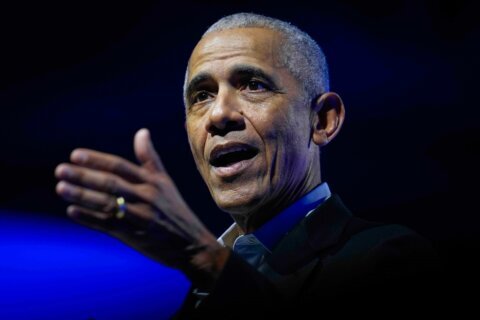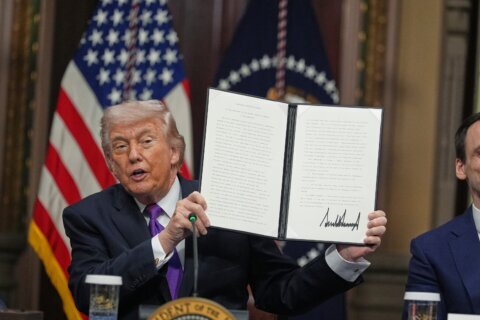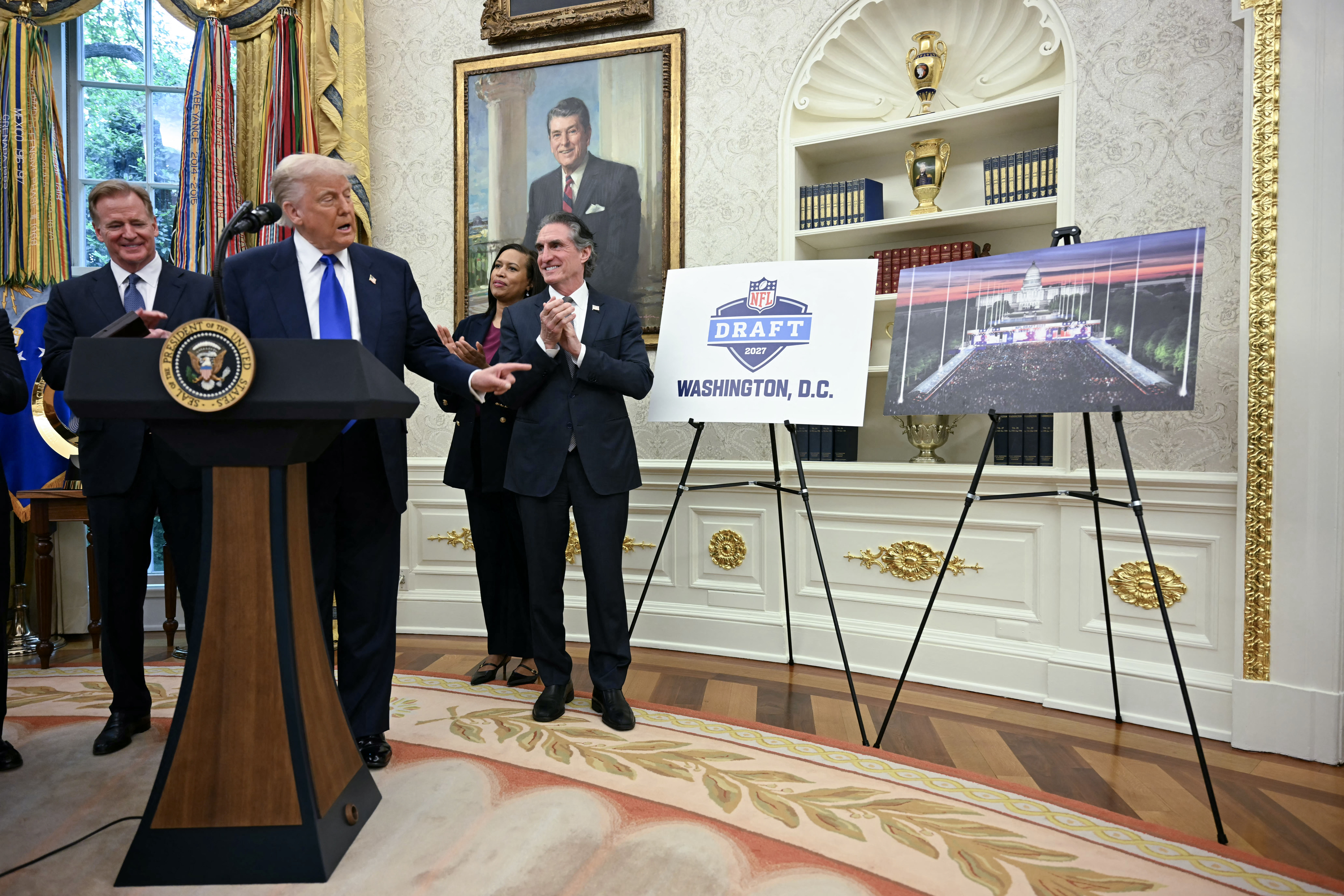Virginia lawmakers voted on dozens of significant bills on what was supposed to be the final day of the annual Virginia General Assembly session, but budget conferees and negotiators failed to reach agreements on other bills in time to end the 60-day session on schedule.
A budget deal was finally reached just before midnight Saturday, but it will take until Monday to formalize it in legislative text.
Under an agreement reached late Saturday night, lawmakers will return Sunday to finish action on all outstanding bills except the budget. The budget bill is now expected to be approved Thursday.
Many other bills did pass or were set to pass by late Saturday night, including driver’s privilege cards for undocumented immigrants, decriminalization of marijuana possession, a minimum wage increase, authorizations for casinos and an opportunity for some local government workers and teachers to access collective bargaining.
Gov. Ralph Northam supports many of the bills, but has the right to sign, veto or offer amendments to them to be considered when lawmakers reconvene for the annual one-day “veto session” Apr. 22.
The day capped a breakneck session of monumental change addressing discrimination, workers’ rights, voting rights, gun regulations and a number of environmental efforts, among other things.
Democrats are in control of both chambers of the General Assembly and the governor’s mansion for the first time in decades, but that has put a significant strain on both the House and Senate Democrats over some differences within or between the caucuses.
The fact that this legislative assembly has been overseen by the most diverse group of lawmakers in Virginia’s history was acknowledged during an annual faux awards ceremony that wrapped up the session.
House Speaker Eileen Filler-Corn is the first woman to preside as speaker and she is the first Jewish speaker. Del. Charniele Herring is the chamber’s first black and first woman majority leader.
“If you can do it, we can as well,” Del. Dolores McQuinn told Filler-Corn Saturday afternoon. “Your extraordinary leadership has opened doors for so many women across this Commonwealth.”
Major votes Saturday
Minimum wage
A deal to raise the minimum wage will see the state’s minimum jump to $9.50 in January 2021, $11 in 2022 and $12 in 2023 and 2024.
“This is a great day for working people in Virginia,” Del. Jeion Ward said.
The last increase for minimum wage Virginia workers was a federal minimum wage increase to $7.25 in 2009, and Ward said the increase would help close the gender and racial pay gap.
If a future General Assembly acts, the minimum wage could rise to $13.50 in 2025 and $15 in 2026, then be tied to inflation.
The bill also requires a study of potential different minimum wages for different parts of the state.
“This is a real compromise for people who have been fighting for a $15 minimum wage … but I’m going to be voting for it because it is a step in the right direction,” Sen. Jennifer Boysko said.
The bill still includes a number of exceptions to the minimum wage, including for au pairs, but the minimum wage would explicitly cover home care providers for the first time.
“This [bill] is better, but it’s still really bad,” Del. Chris Head said.
The House’s original bill would have increased wages more, and more quickly.
Collective bargaining
Limited collective bargaining is likely on the way for some public workers in Virginia.
The General Assembly has agreed on a bill letting counties, cities, towns or school boards opt in to allowing collective bargaining for their employees.
The bill, which passed the House 53-46, does not cover state workers, although the governor could offer an amendment for lawmakers to consider in April.
Confederate monuments
Local governments will be able to move, contextualize or cover Confederate monuments on public property, under a bill headed to the governor’s desk.
Outside of those located at cemeteries, the final agreement grants local leaders greater latitude to address Confederate monuments on public property as long as they provide notice and a public hearing before making a final decision.
Local governments could also hold a referendum to get the public’s input on their proposals.
McQuinn and Sen. Bryce Reeves called it a compromise between the House and Senate versions of the bill.
The bill also changes the section of state code to replace “War between the States” with “Civil War.”
It passed the House 52-43. The Senate voted 23-16 for the bill.
A separate bill to consider replacing Virginia’s statue of Confederate General Robert E. Lee in the U.S. Capitol has also reached its final form. The conference report would create an eight-member panel to consider whether to replace the statue and what iconic Virginian should take Lee’s place.
The General Assembly would ultimately vote on the replacement statue.
Gambling
Sports betting is likely coming to Virginia, and you won’t even need to leave your couch. If you want company though, casinos are also on the way to five areas outside Northern Virginia.
The sports betting bill would allow multiple apps to operate in the state, including allowing the Washington Redskins to get preferential treatment for an application submitted through July 1, 2025 partly depending on their stadium location decision, and providing preference to D.C. United or the Washington Spirit during the same period as part of the franchises’ involvement with Segra Field in Loudoun County.
The House rejected the initial version of the conference committee agreement because the bill would have allowed betting on Virginia college sports. The bill, however, did ban bets on the performance of individual players, known as “prop” bets.
A follow up version of the legislation, which is expected to pass before lawmakers adjourn, could allow bets on college sports involving Virginia teams but set a lower tax rate.
The change was a major focus of lobbying efforts Saturday morning.
“Illegal gambling and the element it attracts is probably more damaging,” Del. Marcus Simon said.
Del. Mark Sickles called it “beyond the pale” for university leaders to claim making money on college sports through betting would be a problem, when big schools make millions off their athletes.
The bill does ban bets on youth sports, sets a tax rate of 17.5 percent on gross revenues for the app operators, allows leagues or sports governing bodies to request their games not be allowed on Virginia betting platforms and bars the use of biometric data in the betting process.
Any casino operators going to a referendum would also get preference for an online sports betting license.
The separate casino bill would allow referendums in five localities — Portsmouth, Richmond, Bristol, Danville and Norfolk — that would lead to large casinos coming to Virginia.
The casinos would require a minimum investment of $300 million and a license fee of $15 million.
Revenue from casinos would be taxed by state and local governments at a staggered rate based on the amount of revenue collected.
Budget delayed
The holdups on the budget were tied to how to provide raises for teachers and other state-supported or state workers, how to handle funding for colleges and universities, and what construction projects to move forward with.
House budget leader Del. Luke Torian said at 11:45 p.m. Saturday that a budget deal had been reached, and the precise wording would be available online by noon Monday.
With a budget deal only finalized late Saturday night, lawmakers will now have to return Thursday to get the two-year budget approved.
Disputes between the House and Senate have led to similar delays in some past years.
The current budget runs through Jun. 30.
Transportation
Significant changes for transportation funding, including a gas tax increase, got final approval Saturday.
The deal, as WTOP reported earlier this week, will raise the state gas tax 10 cents over the next two years, then index the gas tax to inflation to pay for transportation needs. If inflation is negative, the tax would remain flat the following year.
“We tried to put in place a sustainable, statewide transportation funding model,” Senate Majority Leader Dick Saslaw said.
In the Fredericksburg area, a statewide expansion of additional regional gas taxes earmarked for local projects will be instituted for the first time. Those local gas taxes are already in place in Northern Virginia, Hampton Roads and along Interstate 81.
The bill also includes a proposed “fuel-efficient” car fee that would replace the current $64 fee for alternative fuel vehicles as a method of ensuring people who pay less in gas taxes still put more money toward transportation projects.
Statewide, real estate transfer taxes would increase and in Northern Virginia the hotel tax would rise from 2% to 3%.
The real estate transfer tax increase in Northern Virginia, like the hotel tax increase, would be designated to offset money taken away from other Northern Virginia transportation projects for Metro dedicated funding two years ago.
There is also an additional $20 million designation for the Northern Virginia Transportation Authority.
Car inspections remain annual, but car registration fees would be cut from
$38 to $28.
Total new revenue is projected to be about $518 million annually when all fees are phased in, Saslaw said.
Virginia could also issue bonds under the bill for Interstate 81 projects and bonds backed by Interstate 66 toll revenue for the Long Bridge commuter rail project between D.C. and Arlington and a new Metro connection in Rosslyn.
For the new passenger rail authority responsible for major improvements between D.C. and Richmond, the final version of the bill includes some concessions that let the regional bodies that govern VRE service recommend representatives for the authority to the governor. The governor would have the option of picking other people though.
Sen. Bill DeSteph opposes the structure of the rail commission over the extra members included from Northern Virginia due to the VRE system and the centralized control of the appointments within the governor’s office.
The transportation funding bill passed the House 54-43 and passed the Senate 23-16.
Some significant transportation safety changes were blocked by the Senate Saturday though.
After several lawmakers said adults should have the freedom to not wear seat belts without fear of getting pulled over, the Senate voted 29-11 against a measure that would have made wearing a seat belt a requirement for everyone in a car (not just kids or those in the front seat), let local governments lower speed limits in business and residential areas, and established a group to study the impacts of traffic enforcement on minority groups.
The House had approved the deal 54-42. The final version removed original proposals to more tightly restrict open containers of alcohol while driving, ban handheld cellphone use by drivers and to allow speed cameras.
The handheld phone ban behind the wheel and authorization for speed cameras in school zones and roadwork areas have already been sent to the governor’s desk in separate bills.
Lawmakers did vote Saturday to require drivers to stop for pedestrians in crosswalks, and to prohibit cars behind the stopped vehicle from zipping around to get by.
Immigration
Virginians who are in the U.S. illegally will now be allowed to get driver’s privilege cards, under a bill approved Saturday.
A protester shouted “shame” from the Senate gallery before the vote, saying “we deserve driver’s licenses.”
There were cheers as the Senate approved the bill 22-18.
The driver privilege cards are meant to help people get around and live their lives, and to ensure all drivers have car insurance. They look like licenses, but are not REAL ID compliant and have labels indicating that the cards are not for federal, voting or benefits use.
Part of the requirements to get the card include proof of filing Virginia taxes, or being a dependent on a Virginia tax return.
Driver privilege cards will be valid for two years.
The fee will be $50, and there would be restrictions on sharing information about the payments with federal officials. Federal agencies could request information about whether a specific individual has driving privileges, but privacy protections aim to prevent the federal government from sweeping the database to collect information.
“There’s an incredible amount of fear in our community,” Del. Kathy Tran said.
The House voted 57-40 for the bill.
The payments for the card and tax returns would be considered privileged information, and a separate bill limits bulk requests for data from the federal government.
Sen. Scott Surovell projects about 300,000 people could qualify for the cards, which he said could change lives.
“Immigrants’ rights are Americans’ rights,” Del. Elizabeth Guzman said. She called the legislation “historic.”
The General Assembly also approved a separate measure that gives local courts and jails more flexibility on reporting someone’s immigration status to federal officials.
It would be up to local sheriffs or other officials to determine whether to call Immigration and Customs Enforcement to inform them of the undocumented status of people held on misdemeanor charges. Under current law, reports are required more broadly and are required earlier in the legal process.
In schools, a bill headed to the governor will require more teachers for English language learner students. The agreement increases the teacher-student ratio from 17 per 1,000 students now to 18.5 per 1,000 students next school year and to 20 per 1,000 students the following school year.
Criminal justice
The push for some criminal justice reforms continued Saturday with approval of several bills.
The age that kids charged with certain crimes are automatically charged as adults will go up from 14 to 16.
Lawmakers also backed changes to allow many people sentenced in the period when Virginia had abolished parole but juries were not told about that change to have an opportunity to go before the parole board, and to collect data on police interactions with minority groups.
Other bills formally and permanently end the practice of suspending driver’s licenses for unpaid court fines or fees, and require reports on the use of force against students by school resource officers.
Guns
Two more gun bills were sent to Gov. Ralph Northam Saturday, completing a slate of action for the session.
One, universal background checks on gun sales, was part of the eight bills Northam and General Assembly Democrats announced as priorities ahead of the session.
The bill heading to Northam requires background checks only on gun sales, not on other transfers, at the insistence of the Senate.
It makes a total of seven out of the eight bills that are set to become law. The eighth, to limit or ban assault weapons, was blocked by the Senate earlier in the session.
“Virginia has said enough is enough. The emergency of gun violence must end. This legislation will help us get there,” Northam said in a statement Saturday afternoon.
“These bills will save lives,” Northam said.
Another bill passed Saturday would require registered home day cares to keep guns locked and away from children.
The General Assembly also passed bills making most day cares gun-free zones, similar to schools for older children, and requiring in-person safety training in order to get a concealed carry permit.
Permits will no longer be issued to those who take quick online classes, effective Jan. 1, 2021.
Voting
The General Assembly gave final approval Saturday to same-day voter registration at the polls, beginning in the fall of 2022, and to automatic voter registration at the Department of Motor Vehicles.
The automatic voter registration bill essentially changes the system from “opt-in” to “opt-out.”
Marijuana
The General Assembly is set to vote to decriminalize possession of up to one ounce of pot. An initial agreement had to be redone after it inadvertently omitted expungement provisions.
Under the agreement set to pass, possession of up to one ounce for personal use would be punishable by a $25 civil penalty, effective July 1.
People previously convicted of possession would also get the opportunity to have their records expunged.
Current criminal penalties can have lifelong repercussions, Sen. Adam Ebbin said in an interview, in employment, child custody or other areas.
Local tax authority
Counties could raise a variety of taxes to offset real estate taxes, under legislation giving counties the same taxation authority as cities.
The changes, which were also sent back for a second round of negotiations, would allow counties to impose additional taxes starting this July if they choose.
The initial conference report included caps of 6 percent on any meals tax and 10 percent on amusement taxes. Local tobacco taxes would be capped at 40 cents, the current rate allowed in Arlington County and Fairfax County.
Lawmakers did pass a bill Saturday to give local governments the authority to implement 5-cent fees for plastic bags.
Northern Virginia will also become an eligible area for housing voucher tax credits through 2024.
Other bills passed Saturday
Lawmakers also moved to extend a movie production tax credit, give local governments authority in some cases to clear out grass or trees blocking the view of drivers, and a bill that aimed to guarantee immunity for college students using drugs or alcohol if it is disclosed as part of reporting a sexual assault.
Another bill among the many others sent to the governor would require that an archaeologist doing surveys on state land actually be an archaeologist, after problems with recent reports to state and local agencies.
A few bills hit roadblocks on the final day of the session, including a bill to change animal tethering rules that had been approved by the House Friday but had to be redrawn after concerns were raised. A second version was ready around 10:30 p.m. Saturday night.
The bills that did not quite make it over the finish line on time either had last-minute issues identified that could create legal concerns, did not have the support to pass both chambers in any final form, or became lower priorities as work on dozens of bills came down to the wire.
A bill providing a right to shop for electricity got a re-enactment clause that would prevent it from becoming law unless passed again next year, but Northam could propose amendments to the bill for lawmakers to consider at the reconvened session next month.







